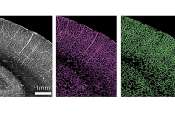State-level, out-of-pocket insulin caps do not substantially increase utilization, study finds
In a first-of-its-kind study, a cohort of researchers, led by the University of Colorado Anschutz Medical Campus, evaluated the effects of state-level insulin out-of-pocket costs across states and payers and over time.
23 hours ago
0
15









